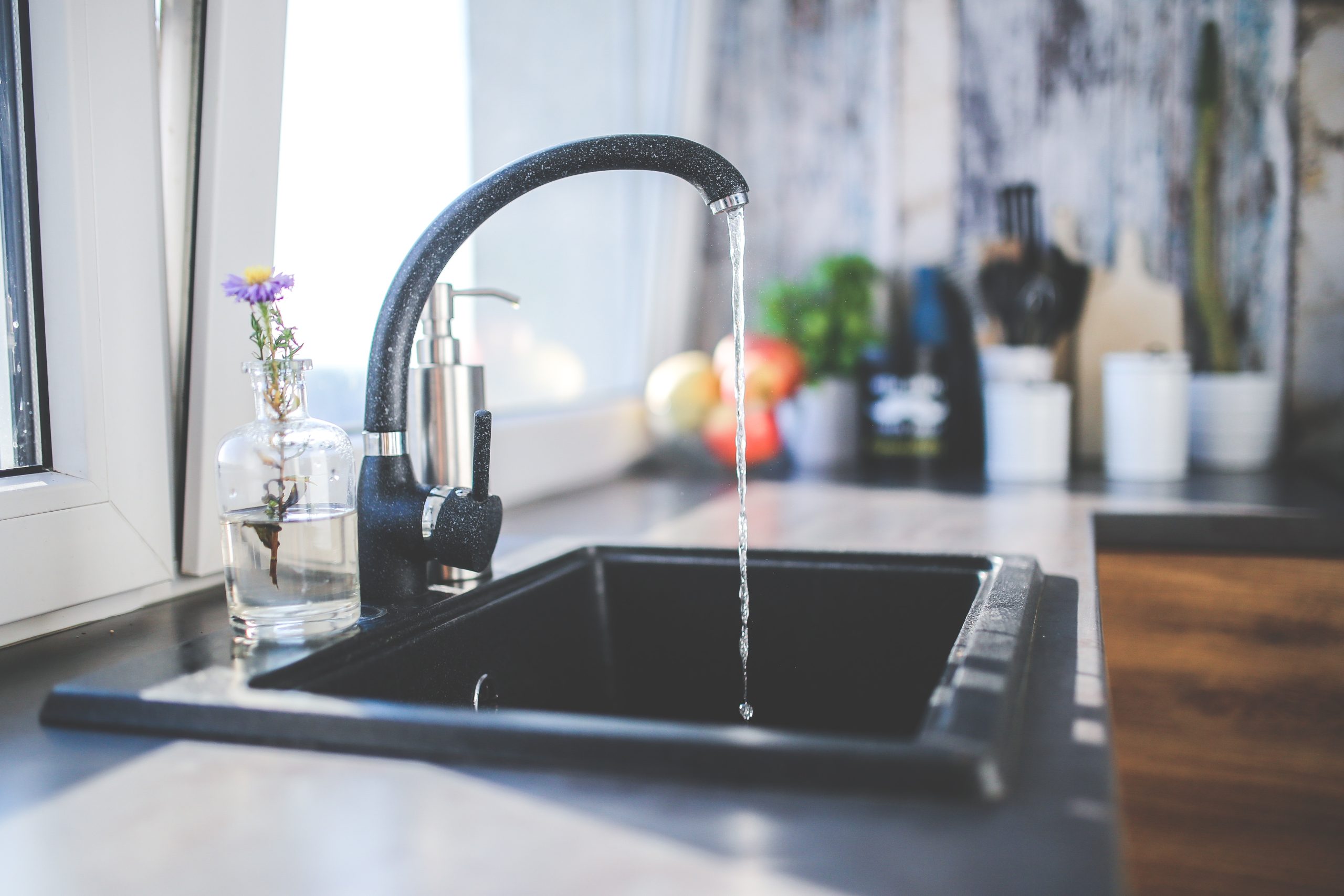Water is a fundamental resource that sustains life, and its quality directly impacts our health. Unfortunately, the water we consume may contain impurities, chemicals, and contaminants that pose potential risks. To address this issue, water filtration systems play a vital role in purifying and ensuring the safety of the water we drink. In this article, we will delve into the different types of water filtration systems, their importance, factors to consider when choosing the right system, and the exceptional services provided by Service by Scott in Tyler County, TX.
What are Water Filtration Systems?
Water filtration systems are essential tools that help improve the quality of water by removing impurities, chemicals, and contaminants. These systems are designed to ensure that the water we consume is clean, safe, and free from harmful substances. With the advancement of technology, water filtration systems have become more efficient and effective in providing purified water.
Water filtration systems work by employing different filtration methods and technologies to target specific contaminants. They consist of various components such as filters, membranes, activated carbon, and other specialized materials that trap and remove impurities from the water. Each type of filtration system has its own unique mechanism to address specific water quality issues.
The main objective of water filtration systems is to eliminate or significantly reduce contaminants such as bacteria, viruses, sediment, chlorine, heavy metals, pesticides, and other harmful substances. By removing these impurities, the filtration systems ensure that the water is safe for drinking, cooking, and other household uses.
Water filtration systems offer numerous benefits. They provide an extra layer of protection against waterborne diseases and health risks associated with consuming contaminated water. These systems can improve the taste, odor, and clarity of water, making it more appealing and refreshing. Additionally, water filtration systems are environmentally friendly alternatives to single-use plastic bottles, as they eliminate the need for bottled water and reduce plastic waste.
In Tyler County, TX, residents and businesses can rely on the exceptional services provided by Service by Scott. With their expertise in water filtration systems, Service by Scott offers professional installation, maintenance, and repair services. They understand the specific water quality challenges faced by the community and provide tailored solutions to ensure clean and safe drinking water for their customers. Whether it’s for residential or commercial purposes, Service by Scott in Tyler County, TX, is dedicated to delivering top-quality water filtration services to enhance the overall water quality and promote the well-being of the community.
The Importance of Water Filtration Systems

Water filtration systems are of utmost importance for ensuring the safety and quality of the water we consume. Here are the key reasons why water filtration systems play a vital role:
Protection of Health
Water filtration systems act as a barrier against contaminants that can pose significant health risks. By removing bacteria, viruses, parasites, chemicals, heavy metals, and other impurities, these systems ensure that the water is safe to drink and use for various purposes. This protection is particularly important for individuals with compromised immune systems, children, and the elderly.
Improved Taste and Odor
Certain impurities and chemicals in untreated water can give it an unpleasant taste and odor. Water filtration systems effectively remove these contaminants, enhancing the overall taste and smell of the water. This makes it more enjoyable to drink and encourages the consumption of an adequate amount of water for proper hydration.
Removal of Harmful Substances
Water from various sources, including municipal supplies, can contain harmful substances like chlorine, lead, arsenic, pesticides, and industrial pollutants. Water filtration systems target and remove these substances, minimizing the potential health risks associated with their consumption. This ensures that the water is pure and free from potentially dangerous compounds.
Protection of Plumbing System
Contaminants present in water can cause corrosion and buildup in plumbing systems, leading to damage and reduced lifespan of pipes and fixtures. Water filtration systems help prevent scale formation and protect the plumbing infrastructure, saving homeowners from costly repairs and replacements.
Environmental Sustainability
By using water filtration systems, individuals reduce their reliance on single-use plastic bottles and contribute to environmental sustainability. Filtering tap water eliminates the need for purchasing bottled water, reducing plastic waste and the carbon footprint associated with the production and transportation of bottled water.
Cost-Effective Solution
While the initial investment in a water filtration system may be higher than buying bottled water, it is a cost-effective long-term solution. The ongoing expenses of purchasing bottled water can add up significantly, making water filtration systems a more economical choice in the long run. Additionally, the convenience and availability of filtered water at home or the workplace can lead to substantial savings over time.
In summary, water filtration systems are essential for protecting our health, enhancing the taste and odor of water, removing harmful substances, preserving the plumbing system, promoting environmental sustainability, and offering a cost-effective solution for clean and safe drinking water. By investing in a quality water filtration system, individuals can enjoy the numerous benefits of pure and healthy water for themselves and their families.
Types of Water Filtration Systems
When it comes to water filtration systems, there are several common types that effectively remove impurities and ensure the delivery of clean and safe drinking water. These systems utilize different methods to address specific contaminants and water quality concerns. Here are some of the most commonly used water filtration systems:
Activated Carbon Filters
Activated carbon filters, also known as carbon filters, utilize activated carbon or charcoal to adsorb and trap impurities. They are particularly effective in removing organic compounds, chlorine, volatile organic compounds (VOCs), and unpleasant odors and tastes from water. Activated carbon filters are widely used in both countertop and under-sink filtration systems.
Reverse Osmosis Systems
Reverse osmosis (RO) systems are highly efficient in removing a wide range of contaminants from water. These systems work by applying pressure to force water through a semi-permeable membrane, effectively removing dissolved solids, heavy metals, bacteria, viruses, and other impurities. RO systems are known for their ability to provide high-quality, purified water for drinking and cooking purposes.
Ultraviolet (UV) Filters
Ultraviolet filters utilize UV light to disinfect water by deactivating bacteria, viruses, and other microorganisms. UV light penetrates the cells of these harmful organisms, disrupting their DNA and rendering them unable to reproduce and causing infections. UV filters are often used in conjunction with other filtration methods to provide comprehensive water purification.
Ceramic Filters
Ceramic filters are made from a porous ceramic material that effectively traps sediments, bacteria, and other contaminants present in water. These filters have fine pores that prevent the passage of particles larger than the pore size, resulting in clean, filtered water. Ceramic filters are commonly used in gravity-fed countertop filters, portable filters, and ceramic candle filters.
Ion Exchange Filters
Ion exchange filters work by exchanging ions in the water, typically calcium and magnesium ions, for other less harmful ions like sodium. This process helps to soften the water by reducing the concentration of minerals that cause hardness. Ion exchange filters are often used in water softening systems to prevent scale buildup in appliances and plumbing fixtures.
By employing these commonly used water filtration systems, individuals and households can effectively remove impurities, contaminants, and unwanted substances from their water supply. Whether it’s improving taste, reducing odors, eliminating harmful chemicals, or providing overall purification, these systems contribute to the delivery of clean, safe, and great-tasting water for various domestic purposes.
Factors to Consider When Choosing a Water Filtration System

When selecting a water filtration system, it’s important to consider several factors to ensure you choose the right system for your specific needs. Here are key factors to consider:
Water Quality
Start by assessing the quality of your water. Conduct a water test or consult with a water treatment professional to identify the specific contaminants and impurities present in your water. This will help you determine which filtration technologies are most effective in addressing your water quality concerns.
Filtration Method
Different filtration methods target specific contaminants. Consider the type of contaminants you want to remove, such as sediment, chlorine, heavy metals, bacteria, or viruses. Choose a filtration system that employs the appropriate technology to effectively remove those contaminants.
Flow Rate and Capacity
Consider the flow rate and capacity of the filtration system. Flow rate refers to the amount of water the system can process per minute, while capacity refers to the total amount of water the system can treat before requiring filter replacement. Ensure that the system can meet the water demands of your household or business.
Installation and Maintenance
Evaluate the installation requirements and ongoing maintenance of the filtration system. Some systems may require professional installation, while others can be easily installed by homeowners. Additionally, consider the frequency and cost of filter replacements or maintenance tasks to ensure the system remains in optimal working condition.
Certifications and Standards
Look for filtration systems that have been tested and certified by reputable organizations, such as NSF International or the Water Quality Association. These certifications ensure that the system meets specific standards for performance and safety.
Budget
Consider your budget when choosing a water filtration system. Determine the initial cost of the system, as well as the long-term expenses for filter replacements or maintenance. Balance your budget with the desired level of water filtration and quality.
Water Usage
Evaluate your specific water usage requirements. Consider whether you need a point-of-use system, such as an under-sink filter or a countertop filter, or a whole-house system that treats water at the point of entry. The choice depends on whether you want filtered water for drinking and cooking purposes or for all household water needs.
Space Availability
Assess the available space for the installation of the filtration system. Some systems, such as reverse osmosis systems or whole-house filters, may require more space for installation and housing.
Maintenance and Replacement
Understand the maintenance requirements and frequency of filter replacements for the chosen system. Ensure that you are comfortable with the recommended maintenance tasks and can easily access replacement filters when needed.
By considering these factors, you can make an informed decision and select a water filtration system that meets your specific water quality needs, budget, and lifestyle requirements. Consulting with a water treatment professional can also provide valuable guidance in choosing the most suitable system for your home or business.
Maintenance and Care Tips for Water Filtration Systems
Proper maintenance and care are essential to ensure the longevity and optimal performance of your water filtration system. By following these practical tips, you can maintain clean and safe water for you and your family:
Routine Cleaning
Regularly clean the exterior of your filtration system with a damp cloth to remove any dust or debris. Pay attention to the faucets, handles, and dispensing areas. For systems with removable components, such as pitcher filters, follow the manufacturer’s instructions for cleaning those parts.
Sanitization
Periodically sanitize your water filtration system to prevent the growth of bacteria or mold. Follow the manufacturer’s guidelines for sanitizing the system, which may involve using a sanitizing solution or running a sanitization cycle. This step helps maintain the cleanliness and effectiveness of the system.
Filter Replacement Schedules
Stay vigilant about filter replacements to ensure optimal filtration performance. Different filters have varying lifespans, so refer to the manufacturer’s recommendations for replacement schedules. Some systems have indicator lights or timers to remind you when it’s time to replace the filters. Regularly replacing filters is crucial to maintain effective contaminant removal.
Troubleshooting Common Problems
If you encounter any issues with your water filtration system, consult the troubleshooting section of the user manual provided by the manufacturer. Common problems may include slow water flow, leaks, unusual tastes or odors, or system malfunctions. Following the troubleshooting steps can often resolve minor issues and restore the system’s functionality.
Professional Maintenance
Consider scheduling regular professional maintenance for your water filtration system. Professional technicians have the expertise to thoroughly inspect, clean, and service your system. They can detect and address any potential problems, ensure proper functioning, and maximize the lifespan of your system. Professional maintenance is especially important for complex systems like reverse osmosis or whole-house filtration systems.
Remember, the specific maintenance requirements may vary depending on the type and brand of your water filtration system. Always refer to the user manual and follow the manufacturer’s instructions for maintenance and care. If you have any concerns or questions, don’t hesitate to reach out to the manufacturer’s customer support or consult with a water treatment professional.
By following these maintenance and care tips, you can enjoy consistent, clean, and safe water from your filtration system. Regular maintenance and timely filter replacements will help preserve the efficiency and effectiveness of the system, providing you with peace of mind and reliable access to high-quality water for years to come.
Conclusion
In conclusion, ensuring clean and safe drinking water is crucial for maintaining good health and well-being. Water filtration systems play a vital role in removing impurities, contaminants, and harmful substances from our water supply. By investing in a reliable and effective water filtration system, you can enjoy numerous benefits, including improved water taste, odor, and clarity, as well as protection against waterborne diseases.
When selecting a water filtration system, consider factors such as water quality, filtration method, flow rate, and capacity, installation and maintenance requirements, certifications, budget, water usage, and available space. Evaluating these factors will help you choose the most suitable system that meets your specific needs and provides the desired level of water purification.
In Tyler County, TX, residents and businesses can rely on the exceptional services provided by Service by Scott. With their expertise in water filtration systems, Service by Scott offers professional installation, maintenance, and repair services tailored to the unique water quality challenges faced by the community. Their knowledgeable team can guide you in choosing the right water filtration system for your home or business, ensuring clean and safe drinking water for you and your family.
To take the next step towards enhancing your water quality, don’t hesitate to contact Service by Scott today. Their friendly and experienced staff will be happy to assist you in selecting the ideal water filtration system and address any questions or concerns you may have. Enjoy the peace of mind that comes with having a trusted partner like Service by Scott by your side in ensuring the cleanliness and safety of your water supply.
FAQs
How often should I replace the filters in my water filtration system?
Filter replacement frequency varies depending on the system and manufacturer’s guidelines. Generally, filters are replaced every 3 to 6 months for optimal performance.
Can I use my water filtration system with well water?
Yes, many systems are compatible with well water. However, consider specific system requirements and consult a water treatment professional for tailored recommendations.
How do I know if my water filtration system is working properly?
Check the water’s taste, clarity, and any system indicators or alarms. Regularly test the water quality and compare it to the system’s specifications.
Can I install a water filtration system on my own?
Some systems are designed for DIY installation, while others may require professional help. Always follow the manufacturer’s instructions and guidelines.
Are water filtration systems environmentally friendly?
Yes, they are eco-friendly alternatives to plastic bottles. Filtration systems reduce plastic waste and many have replaceable filters, promoting sustainability.

